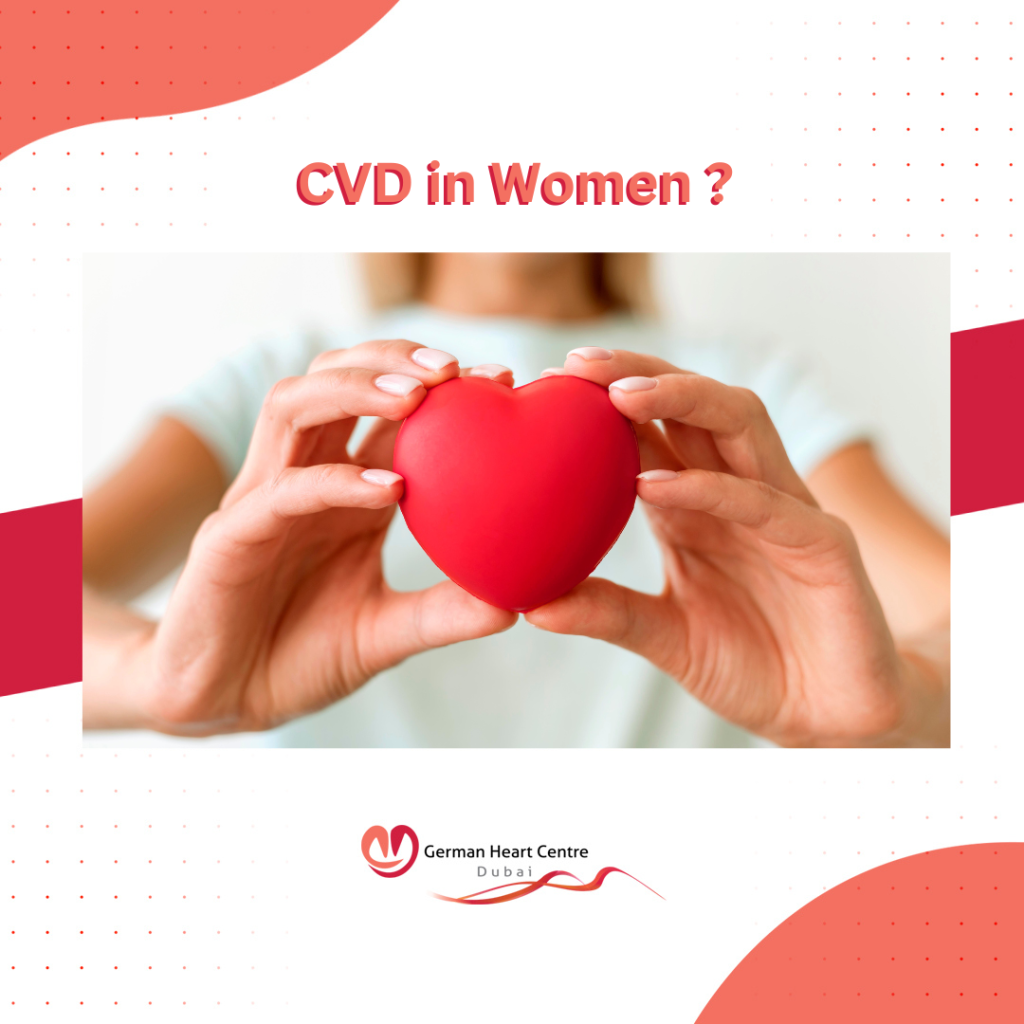How is the cardiovascular system different in women vs. men?
Researchers have found many sex-related differences in the cardiovascular system. These complex differences, often at a microscopic level, can affect how women and men experience heart disease. A few examples include:
Anatomy. Women have smaller blood vessels and heart chambers. The walls of their ventricles are also thinner.
Blood count. Women have fewer red blood cells. As a result, women can’t take in or carry as much oxygen at any given time.
Cardiovascular adaptations. Changes in altitude or body position (like quickly standing up after lying down) affect women more than men. Women are more likely to have sudden drops in blood pressure or faint.
Hormones. Estrogen and progesterone dominate in women, while testosterone dominates in men. These hormones can impact many aspects of heart health and overall health.
Symptoms of cardiovascular disease in women
Chest pain (angina) is the most common symptom for women and men. Chest pain can feel like:
General discomfort.
Heaviness.
Tightness.
Pressure.
Aching.
Burning.
Numbness.
Fullness.
Squeezing.
Women are more likely to have additional, atypical symptoms that include:
Unusual fatigue.
Extreme weakness.
Shortness of breath (dyspnea).
Heart palpitations.
Faster heartbeat.
Dizziness.
Nausea.
Sudden sweating or sweating with no cause (cold, clammy feeling).
Heart disease risk factors for women
Several traditional risk factors for coronary artery disease — such as high cholesterol, high blood pressure and obesity — affect both women and men. But other factors may play a bigger role in the development of heart disease in women.
Heart disease risk factors for women include:
Diabetes. Women with diabetes are more likely to develop heart disease than are men with diabetes. Also, because diabetes can change the way women feel pain, there’s an increased risk of having a silent heart attack — without symptoms.
Emotional stress and depression. Stress and depression affect women’s hearts more than men’s. Depression may make it difficult to maintain a healthy lifestyle and follow recommended treatment for other health conditions.
Smoking. Smoking is a greater risk factor for heart disease in women than it is in men.
Inactivity. A lack of physical activity is a major risk factor for heart disease.
Menopause. Low levels of estrogen after menopause increase the risk of developing disease in smaller blood vessels.
Pregnancy complications. High blood pressure or diabetes during pregnancy can increase the mother’s long-term risk of high blood pressure and diabetes. These conditions also make women more likely to get heart disease.
Family history of early heart disease. This appears to be a greater risk factor in women than in men.
Inflammatory diseases. Rheumatoid arthritis, lupus and other inflammatory conditions may increase the risk of heart disease in both men and women.
Women of all ages should take heart disease seriously. Women under age 65 — especially those with a family history of heart disease — also need to pay close attention to heart disease risk factors.
How can women prevent heart disease?
Women have the power to take action and reduce their heart disease risk. Many risk factors are preventable or manageable with treatment. The top seven risk factors women (and everyone) can target for change include:
High blood pressure.
High cholesterol.
High blood sugar.
Lack of exercise.
Unhealthy diet.
Having overweight or obesity.
Smoking.
Ideally, prevention starts in early childhood when habits begin to form. But adults in their 20s and 30s can make a huge difference in their health by paying attention to their heart health and working to reduce their risk. And it’s important to remember that change doesn’t happen overnight.
The team at German Heart Centre is certified and experienced to support the diagnosis of your symptoms. Call today with your questions or to book a full physical check-up.
Disclaimer: This content including advice provides generic information only. It is in no way a substitute for a qualified medical opinion. Always consult a specialist or your own doctor for more information on the topic.

